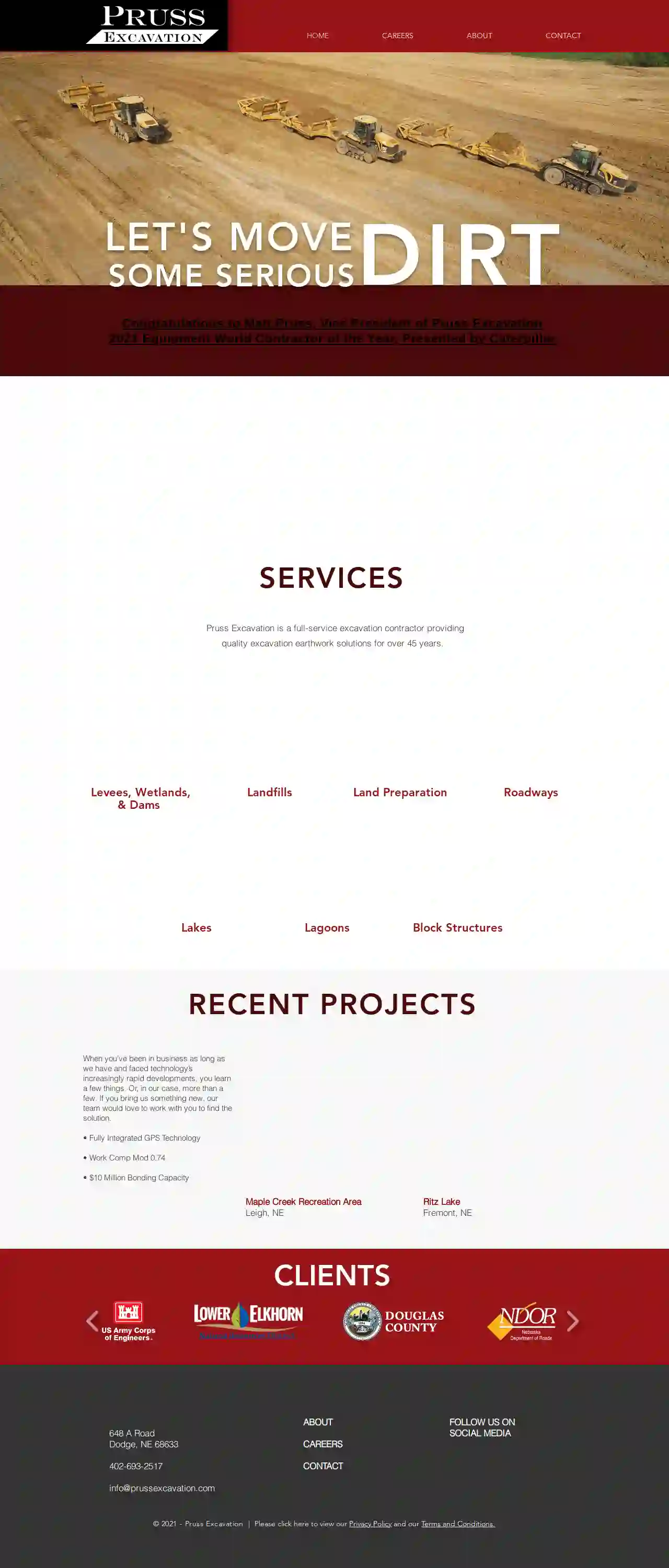Excavation Contractors Rock Hill
Top 10 Excavation Contractors Near Me in Rock Hill
Receive 3 FREE Excavation Contractors Near Me quotes for your project today! Compare profiles, reviews, accreditations, portfolio, etc... and choose the best service.
- B
B & C Home - Land Service
1Anderson, US- Services
- Why Us?
Get Quote - Jo
Johnson Excavating, Inc.
52 reviewsAnderson, US- Services
- Why Us?
- Gallery
Get Quote 
Rolle's Enhanced Land Clearing & Lawn Care Services
11000 Rollens Rd, Statesboro, 31408, USAbout Rollens Enhanced Land Clearing Rollens Enhanced Land Clearing is a family-owned and operated business with over 20 years of experience in the land clearing industry. We are committed to providing our clients with the highest quality service and workmanship. We are fully licensed and insured, and we are dedicated to safety and environmental responsibility. Our team of experienced professionals is equipped with the latest technology and equipment to handle any land clearing project, big or small. We offer a wide range of services, including: Site preparation Tree removal Brush clearing Land grading Demolition And more! We are committed to providing our clients with a smooth and efficient experience. We work closely with our clients to understand their needs and ensure that their project is completed on time and within budget. We are proud of our reputation for quality, reliability, and customer satisfaction. Contact us today for a free consultation.
- Services
- Why Us?
- Testimonials
Get Quote- Ar
Archie's Contracting Co Inc
1Anderson, US- Services
- Why Us?
Get Quote - Th
Thad's Hauling And Excavating
54 reviewsAnderson, US- Services
- Why Us?
Get Quote - Ca
Carolina Contracting, Inc.
2.85 reviewsAnderson, US- Services
- Why Us?
Get Quote - Ta
Taylor Kyle A
1Anderson, US- Services
- Why Us?
Get Quote 
Tri-County Land Services LLC
519 reviewsAnderson, USRESIDENTIAL AND COMMERCIAL LAND clearing and Excavation SERVICES IN SOUTH CAROLINA EXPERT LAND Clearing SERVICES IN SOUTH CAROLINA Tri-County Land Services Offers:Commercial Grading & Land Clearing | Residential Land Clearing Site Prep | Pond Building & Repairing | Full-Structural Demolition
- Services
- Why Us?
- Testimonials
- Gallery
Get Quote- Bu
Bushwacker Land Improvements
53 reviewsAnderson, US- Services
- Why Us?
Get Quote 
Pruss Excavation
4.313 reviews648 A Road, Dodge, 68633, USPruss Excavation: Your Trusted Partner for Quality Excavation Solutions For over 45 years, Pruss Excavation has been a leading provider of full-service excavation services, delivering exceptional earthwork solutions to clients across Nebraska. Our commitment to quality, safety, and customer satisfaction has earned us a reputation for excellence in the industry. We understand that every project is unique, and we take a personalized approach to ensure that your needs are met. Our experienced team of professionals is equipped with the latest technology and equipment to handle any excavation project, from small residential projects to large-scale commercial developments. At Pruss Excavation, we pride ourselves on our dedication to safety and environmental responsibility. We are committed to operating in a sustainable manner and minimizing our impact on the environment. Our team is fully trained and certified to ensure that all projects are completed safely and efficiently. Whether you need site preparation, utility installation, or any other excavation services, Pruss Excavation is your trusted partner. Contact us today to discuss your project and learn how we can help you achieve your goals.
- Services
- Why Us?
- Gallery
Get Quote
Over 21,512+ Excavation Contractors onboarded
Our excavation contractors operate in Rock Hill and surrounding areas!
ExcavationHQ has curated and vetted the Best Excavation Contractors in Rock Hill. Find a top & reliable business today.
Frequently Asked Questions About Excavation Contractors
- Trench Collapses: Unstable trench walls can cave in, posing a severe risk to workers. Proper shoring and sloping are crucial safety measures.
- Utility Damage: Striking underground utilities (gas, water, electric) can cause leaks, explosions, or electrocution. Accurate utility locates and careful digging are essential.
- Falling Objects: Materials or equipment falling into excavations can injure workers. Securing work areas and using appropriate safety gear is vital.
- Equipment Accidents: Operating heavy machinery involves risks of rollovers, collisions, or mechanical failures. Trained operators and proper equipment maintenance are critical.
- Environmental Hazards: Excavated soil might contain hazardous materials (asbestos, lead). Proper testing and disposal procedures are necessary.
- Basement Size: The larger the basement, the more excavation is required, increasing the cost.
- Soil Type: Excavating rocky or dense clay soil is generally more expensive than loose soil.
- Accessibility: Difficult-to-access sites might require specialized equipment or more labor, driving up costs.
- Foundation Type: The chosen foundation type (full basement, crawl space, slab) affects excavation needs.
- Underpinning: If underpinning (strengthening existing foundations) is necessary, it significantly increases costs.
- Disposal Fees: Hauling excavated soil to disposal sites adds to the overall expense.
- Project Size and Scope: The larger and more complex the excavation, the higher the cost.
- Soil Type: Different soil types require different equipment and techniques, impacting costs. Rocky or clay-rich soil can be more expensive to excavate than loose soil.
- Accessibility: Difficult-to-access sites might require specialized equipment or additional labor, increasing expenses.
- Disposal Costs: Hauling away excavated material (soil, rocks, etc.) to disposal sites incurs additional fees.
- Permits and Inspections: Depending on local regulations, permits and inspections might be required, adding to the overall cost.
- Mechanical Excavation: Utilizing heavy equipment like excavators, backhoes, bulldozers, and loaders, suitable for most projects.
- Hand Excavation: Using hand tools (shovels, picks) for smaller excavations or delicate work near utilities.
- Blasting: Employing explosives to break up rock or hard materials, typically for large-scale projects.
- Hydro Excavation: Using high-pressure water jets to loosen and remove soil, often used for locating utilities or delicate excavation.
- Vacuum Excavation: Employing a vacuum system to suck up excavated material, suitable for safe excavation near utilities or in confined spaces.
What are the risks associated with excavation?
How much does it cost to excavate a basement?
How much does excavation cost?
What are the different methods of excavation?
What are the risks associated with excavation?
- Trench Collapses: Unstable trench walls can cave in, posing a severe risk to workers. Proper shoring and sloping are crucial safety measures.
- Utility Damage: Striking underground utilities (gas, water, electric) can cause leaks, explosions, or electrocution. Accurate utility locates and careful digging are essential.
- Falling Objects: Materials or equipment falling into excavations can injure workers. Securing work areas and using appropriate safety gear is vital.
- Equipment Accidents: Operating heavy machinery involves risks of rollovers, collisions, or mechanical failures. Trained operators and proper equipment maintenance are critical.
- Environmental Hazards: Excavated soil might contain hazardous materials (asbestos, lead). Proper testing and disposal procedures are necessary.
How much does it cost to excavate a basement?
- Basement Size: The larger the basement, the more excavation is required, increasing the cost.
- Soil Type: Excavating rocky or dense clay soil is generally more expensive than loose soil.
- Accessibility: Difficult-to-access sites might require specialized equipment or more labor, driving up costs.
- Foundation Type: The chosen foundation type (full basement, crawl space, slab) affects excavation needs.
- Underpinning: If underpinning (strengthening existing foundations) is necessary, it significantly increases costs.
- Disposal Fees: Hauling excavated soil to disposal sites adds to the overall expense.
How much does excavation cost?
- Project Size and Scope: The larger and more complex the excavation, the higher the cost.
- Soil Type: Different soil types require different equipment and techniques, impacting costs. Rocky or clay-rich soil can be more expensive to excavate than loose soil.
- Accessibility: Difficult-to-access sites might require specialized equipment or additional labor, increasing expenses.
- Disposal Costs: Hauling away excavated material (soil, rocks, etc.) to disposal sites incurs additional fees.
- Permits and Inspections: Depending on local regulations, permits and inspections might be required, adding to the overall cost.
What are the different methods of excavation?
- Mechanical Excavation: Utilizing heavy equipment like excavators, backhoes, bulldozers, and loaders, suitable for most projects.
- Hand Excavation: Using hand tools (shovels, picks) for smaller excavations or delicate work near utilities.
- Blasting: Employing explosives to break up rock or hard materials, typically for large-scale projects.
- Hydro Excavation: Using high-pressure water jets to loosen and remove soil, often used for locating utilities or delicate excavation.
- Vacuum Excavation: Employing a vacuum system to suck up excavated material, suitable for safe excavation near utilities or in confined spaces.